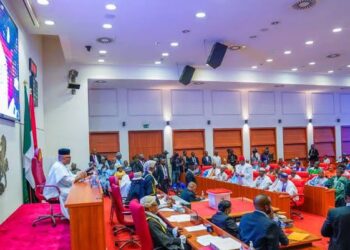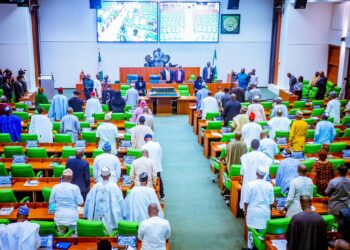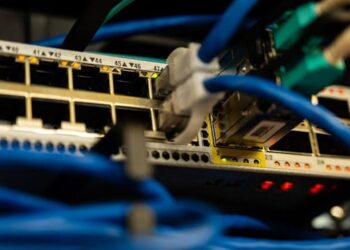Telecommunications companies in Nigeria will from September 1, 2022, begin to earn more from calls terminating on their network from outside the country. This came as the Nigerian Communications Commission (NCC) increased the International Termination Rate (ITR) from $0.045 to $0.10 (10 cents) per minute.
The new rate, the Commission said, is to be paid in dollars to prevent a situation where the operator will be losing should the devaluation of the Naira continues. In 2021, NCC put the total incoming international calls to the mobile networks at 1.1 trillion (1,153,834,485,182.74) minutes. The ITR was, however, paid in Naira, thus delivering less revenue for the Nigerian telecom operators.
In order to ease the remittance of the dollar revenue for the operators, NCC said its meeting with the Central Bank of Nigeria on June 23rd, 2022, has led to the issuance of a new circular by the apex bank to all commercial banks to allow the telecom operators open dedicated accounts in respect of international calls.
The new ITR is coming barely 8 months after the telecom regulator announced $0.045 as the amount to be charged. This took effect from January 1, 2022. With this, NCC said the transit carriers known as International Data Access (IDA) operators are to terminate international calls at a discount of 21% of the $0.10.
What the NCC is saying
The NCC, in an amended ITR document released on Tuesday, explained the reasons for the increment. It said: “While the Determination had set a floor price at $0.045 and gives the MNOs room to negotiate on commercial terms with carriers, there were related indications that the MNOs took advantage of this latitude to engage in discriminatory pricing that favours their related international carrier partners to the detriment of the Nigerian transit/IDA operators.
“To check the incidence of such anti-competitive disposition, it was agreed by all parties at meetings that a fixed rate should be adopted by the Commission, in place of the floor rate which had provided a platform for negotiations with various carriers at a rate above the floor. It was further agreed that the present Determination should be amended to include this new fixed rate. This position was further underscored by the fact that the floor price of $0.045 while being the lowest in Africa, does not support predictability and monitoring, with a little positive impact on a healthy national balance of payment position.”
While noting that a fixed rate would ensure transparency in pricing by all, and support the Commission’s effort to monitor compliance by all operators, the Commission added that: “To give effect to this, representatives of MNOs and IDAs had initially proposed a fixed ITR at $0.08 and $0.15 respectively, for Commission’s consideration. However, after a thorough evaluation, the Commission resolved to peg the rate at $0.10.”
What you should know
- ITR is the rate paid to local operators by international operators to terminate calls in Nigeria.
- A study on the ITR regime in Nigeria’s telecom sector, which was conducted in 2018 by PricewaterhouseCoopers (PwC) established that the Nigerian operators were being underpaid, thus recommending that the NCC come up to adopt a cost-based approach, among other options.
- In 2013, NCC issued a determination stating that MTR (Mobile Termination Rates) are the same, ‘irrespective of where the call originated’ This is related to the price paid by one operator in Nigeria to another operator for terminating a call in their network. It was not intended to apply to international operators
- PwC said operators abroad construed the 2013 Determination to mean that the ITR should equal the MTR ignoring the international cost portion – i.e. the residual.
- According to PwC, this had four effects, which include that ITRs were agreed at MTR level, i.e. at a lower level and without a positive ‘residual’ to cover the costs of the international leg; ITRs continued to decline from there, in line with the MTR glide path; ITRs were set in Naira, which had a further downward effect in dollar terms at the time of currency devaluation; and Nigerian operators paid the international operators in dollars to deliver international calls which created an imbalance of payments as the ITR in Naira declined.























